Pro-Poor
“Our commitment is to form a welfare state where rule of law, meritocracy, transparency and accountability in governance are guaranteed, where equal opportunity exists for all and where social welfare is provided to all those who need it.” – Imran Khan’s Victory Speech, August 2018.
- As a result of the 2001 Islamabad cloud burst, Pakistan faced severe flooding. In response, Khan auctioned his signed cricket bat from the 1992 Cricket World Cup and the sweater he wore while playing cricket. The bat alone raised $20,000 for flood victims. Khan stated that these were the last two items he had left, as he had previously auctioned off the rest to support Shaukat Khanum Hospital.
- Khan established The Imran Khan Foundation (IKF) in February 2006. In January 2013, IKF announced a Rs30 million emergency relief project for internally displaced persons (IDPs), refugees of the war on terror, belonging to the Mehsud tribe of North Waziristan who were neglected by the government. The project provided food supplies, winter essentials, and waterproof tents to 2,600 families in Tank, Khyber Pakhtunkhwa.
- Imran Khan has led several health initiatives, both inside and outside of his political roles. His most lauded effort is the creation of the Shaukat Khanum Memorial Trust Cancer Hospital in Lahore, which opened its doors in 1994 and, more recently, in Peshawar. The hospital provides free cancer treatment at the point of delivery for at least 75% of patients who would otherwise be unable to afford treatment in Pakistan.
- Alongside his charitable missions, Imran Khan has shown an ongoing commitment to education and literacy, including a grand vision of world-class higher education being accessible to the underprivileged in Pakistan. After three years of planning and 18 fundraising, Khan established the Namal University in the village of Namal, in the Mianwali district of Pakistan.
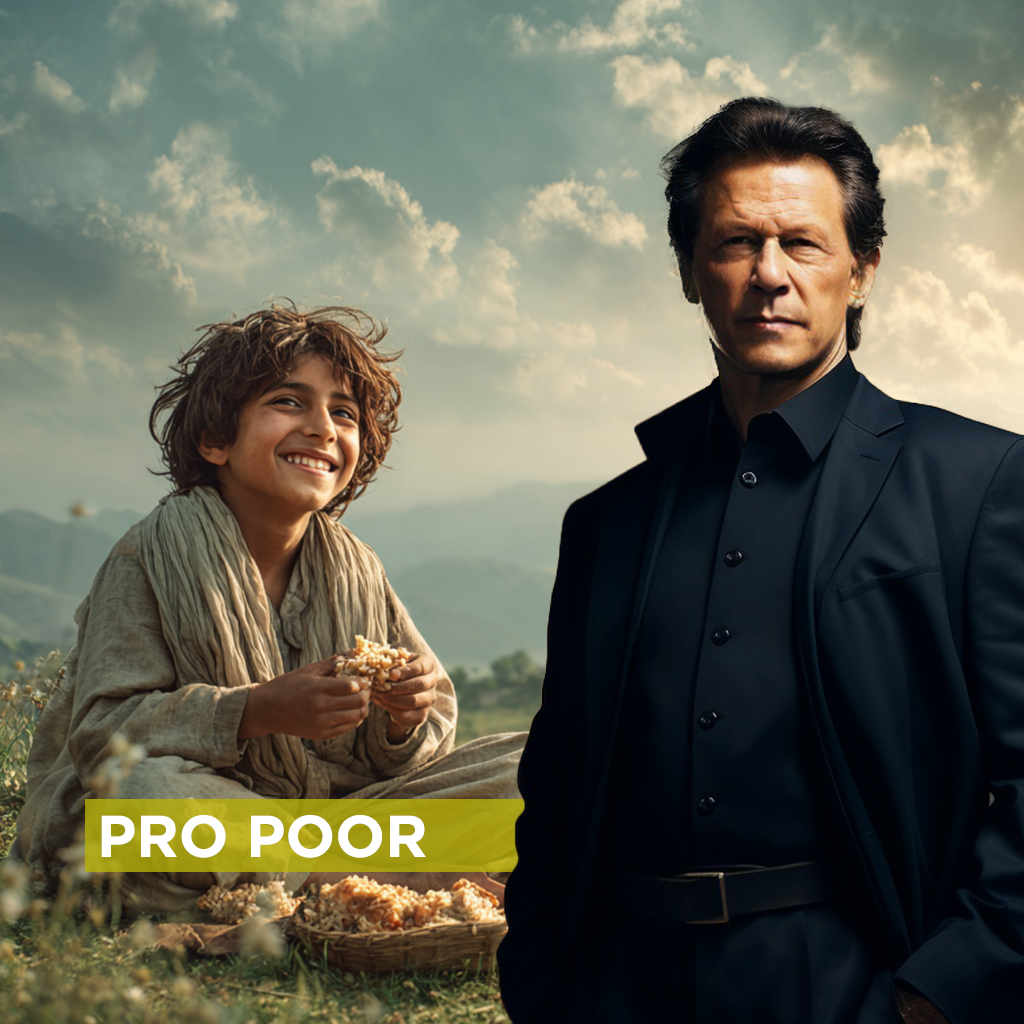
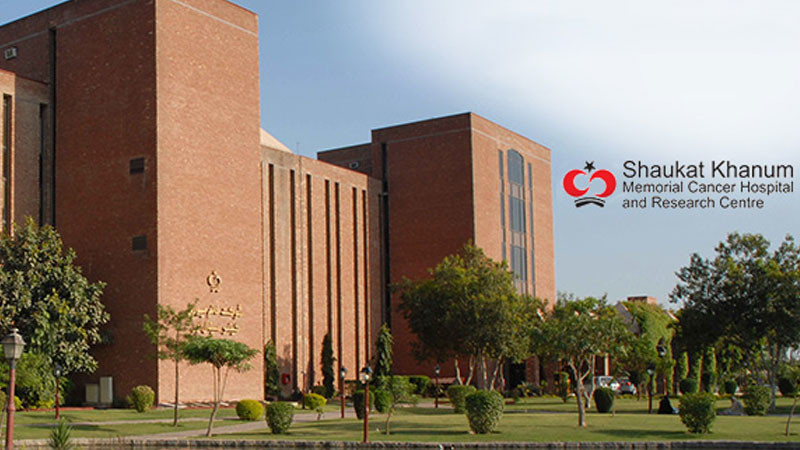
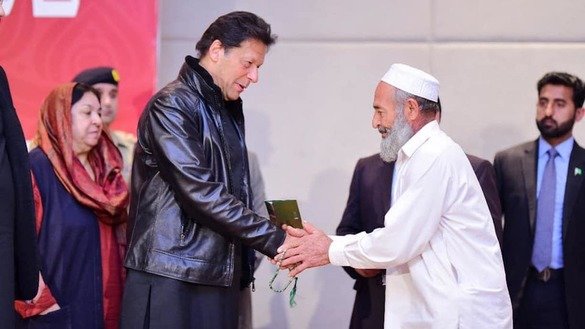
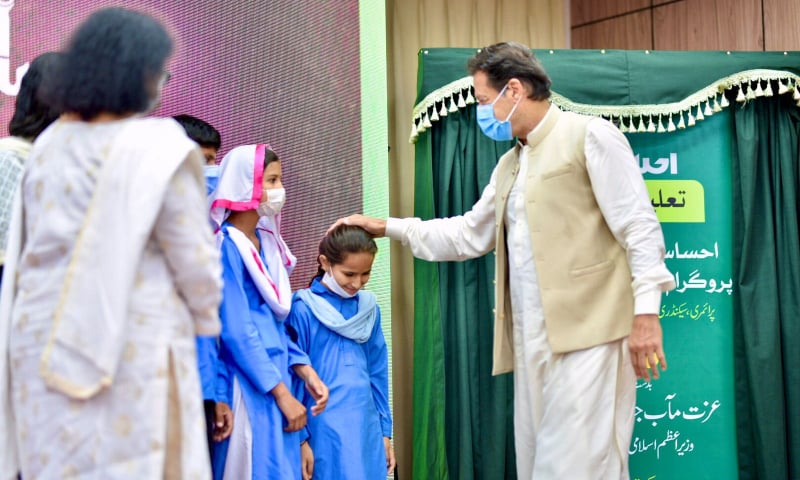
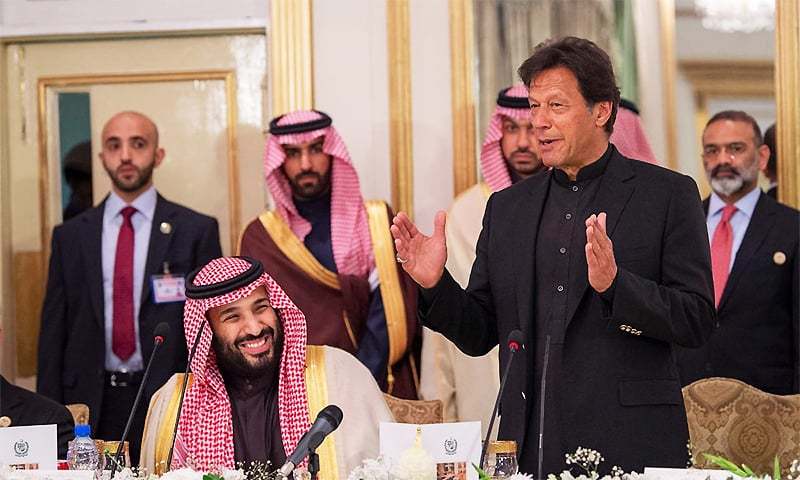
Empathy was the cornerstone of his Government
- Imran Khan’s government established The Sehat Sahulat (Access to Health) Card for the poor which allowed them access to free medical treatment. The Sehat Sahulat Program received appreciation beyond Pakistan’s borders and was lauded in the Lancet in December 2022 as “a social justice health policy leaving no one behind.”
- The Ehsaas (Empathy) Program launched in March 2019 to deliver Khan’s vision of creating a social welfare state. This Ehsaas program was aligned with the United Nations (UN) Sustainable Development Agenda 2030, which includes the goals of zero hunger, good health and well-being, women empowerment, elimination of poverty, and reduction in inequality.
- The Freeman Spogli Institute for International Studies reported in a review of the Ehsaas Program, “Pakistan’s Ehsaas Program has set itself apart as a world-leading anti-poverty effort to uplift the country’s most vulnerable.” An independent analysis by global social impact consultancy “Delivery Associated” reported, “Ehsaas is a landmark in anti-poverty program in the history of Pakistan.” The Borgen Project reported, “Ehsaas’s implementation provides valuable lessons for other nations.” In a 2021 report by the World Bank, Pakistan’s Ehsaas Emergency Cash Program was highlighted for its remarkable reach, ranking fourth globally in terms of the number of people covered and third in terms of the percentage of the population served. The World Bank praised the program for its rapid rollout and extensive coverage, calling it one of the most impressive large-scale social protection measures worldwide.
- During the visit to Pakistan of the Crown Prince of Saudi Arabia, Muhammad Bin Salman, PM Imran made a special request to the Crown Prince to look into the hardship of Pakistani laborers in Saudi Arabia and those imprisoned there for fines they were unable to pay. In response, the Saudi Crown Prince ordered the release of over two thousand Pakistani prisoners in Saudia Arabia.